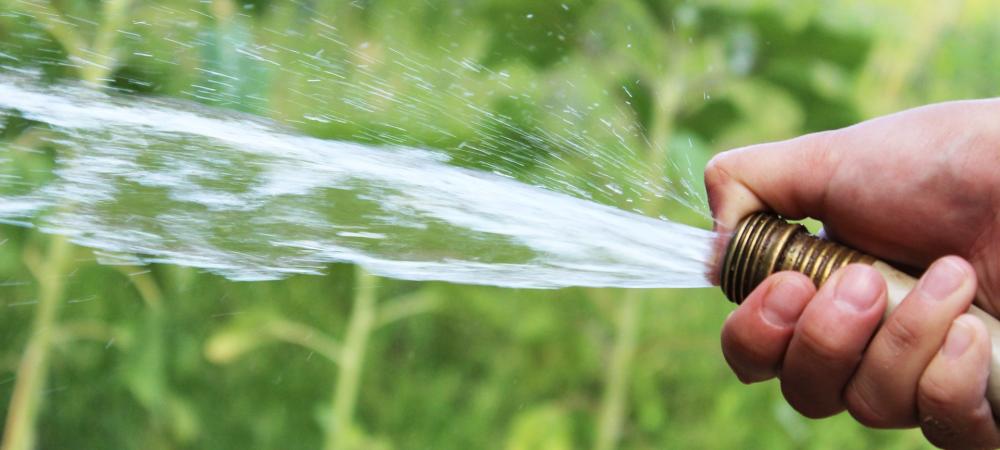Guide To Watering Your Grass In Summerville, SC

Summerville, South Carolina, is a beautiful place to live - with its lush greenery, mild weather, and local beaches. But to keep your lawn looking its best year-round, staying up-to-date on best practices for watering your grass is essential. While there are some common tips, such as avoiding over/under watering and making sure you use the right amount of fertilizer during heat waves that apply everywhere, Summerville residents know that conditions here require special considerations when it comes time to give their grass a drink. In this guide, we'll look into the area's unique climate factors so you can get the hang of how often you should be watering your lawn throughout all seasons like an old pro!
Understand the Importance of Watering Your Lawn - Why it's Necessary and How it Helps Keep Your Lawn Healthy
Watering your lawn is an essential part of lawn care in Summerville. It keeps grass healthy by providing the hydration and nourishment needed to stay vigorous and vibrant. Without adequate watering, due to dehydration, grass leaves can become crispy, yellow, or discolored. Additionally, dry soil can promote the growth of weeds more easily than well-watered turf. By watering your lawn regularly and deeply enough for the water to reach the root system, you are helping ensure that your grass has all the hydration it needs to keep growing strong. Properly watered grass also maintains a spongy texture which helps to absorb shock from foot traffic and outdoor activity - protecting your lawn from damage and promoting its overall health in the long run.
Know The Climate and Soil Type Of Your Summerville Lawn
Summerville, SC, has a unique climate that impacts the soil type and how much water is needed for growth. In general, the weather in Summerville is humid sub-tropical: temperate with mild winters and hot, humid summers. With this climate, the soil type tends to be sandy loam or a mix of clay and sand. Additionally, much more sunlight during summer months contributes to higher evaporation rates, increasing the need for watering plants and turf. To ensure healthy landscape development in this environment, it is vital to have sufficient knowledge of both the climate and its associated soils when deciding on a watering schedule.
Research When to Water Your Grass According to the Season, Time of Day, and Amount of Rainfall
To keep your grass healthy and vibrant, it is crucial to understand how much water your grass needs. Generally, you should water your grass in the mornings as the sun will cause the water to evaporate less quickly from the soil. During warmer months, such as summer, you may need to water your grass up to two times a week if there has not been adequate rainfall in the area. In contrast, in colder climates with lower temperatures and lots of precipitation, you may only need to sprinkle water on your grass for about 10 minutes once every 10-14 days. Knowing when and how often to water your grass can make all the difference in maintaining its lush look!
Choose the Right Watering Equipment for Your Yard Size
Researching and choosing the right watering equipment can make outdoor maintenance more effective and enjoyable! Choosing the right watering equipment for your yard can be tricky, so it's essential to consider the size and type of your lawn before purchasing an irrigation system. A more extensive property may require a sprinkler system or a long hose, whereas smaller yards may need a manual watering can. Systems with timers and sensors can help ensure no water is wasted, while heavier-duty hoses are helpful for longer gardens or those with intricate landscaping. It is also an excellent idea to factor in weather patterns when selecting the best equipment for your specific needs – you may want to invest in more heavy-duty materials if you experience extreme weather conditions frequently.
Different Types of Irrigation Systems - Drip Irrigation vs. Spray Irrigation
Irrigation systems are invaluable tools in modern agricultural production. There are two main categories of irrigation: spray irrigation and drip irrigation. Spray irrigation is more traditional, using a network of pipes, pumps, sprinklers, and other equipment to spray water in an even application onto crops or pastures. Drip irrigation is more precise and efficient because it slowly needs water directly to each plant's root. From cost-effectiveness to water efficiency, drip irrigation can be much more beneficial than traditional spray systems for some applications. Both systems can significantly improve crop turnout if installed and managed correctly by experienced professionals.
Ways to Conserve Water
Conserving water is essential in preserving the world's resources and should be practiced at every opportunity. While reducing daily water use through traditional methods such as shutting off taps while brushing teeth or taking shorter showers is important, other ways can help protect this valuable natural resource. Mulching and composting are two sustainable practices that reduce the water needed for gardening and landscaping. Like straw or pine needles, Mulches form a protective layer around the soil to reduce evaporation and keep plants well-watered during dry summer days. Composting adds organic matter to the earth while decreasing runoff when it rains, thereby increasing the soil's ability to absorb moisture from rainwater. Together these two practices can improve the health of your garden without putting a strain on local water sources.